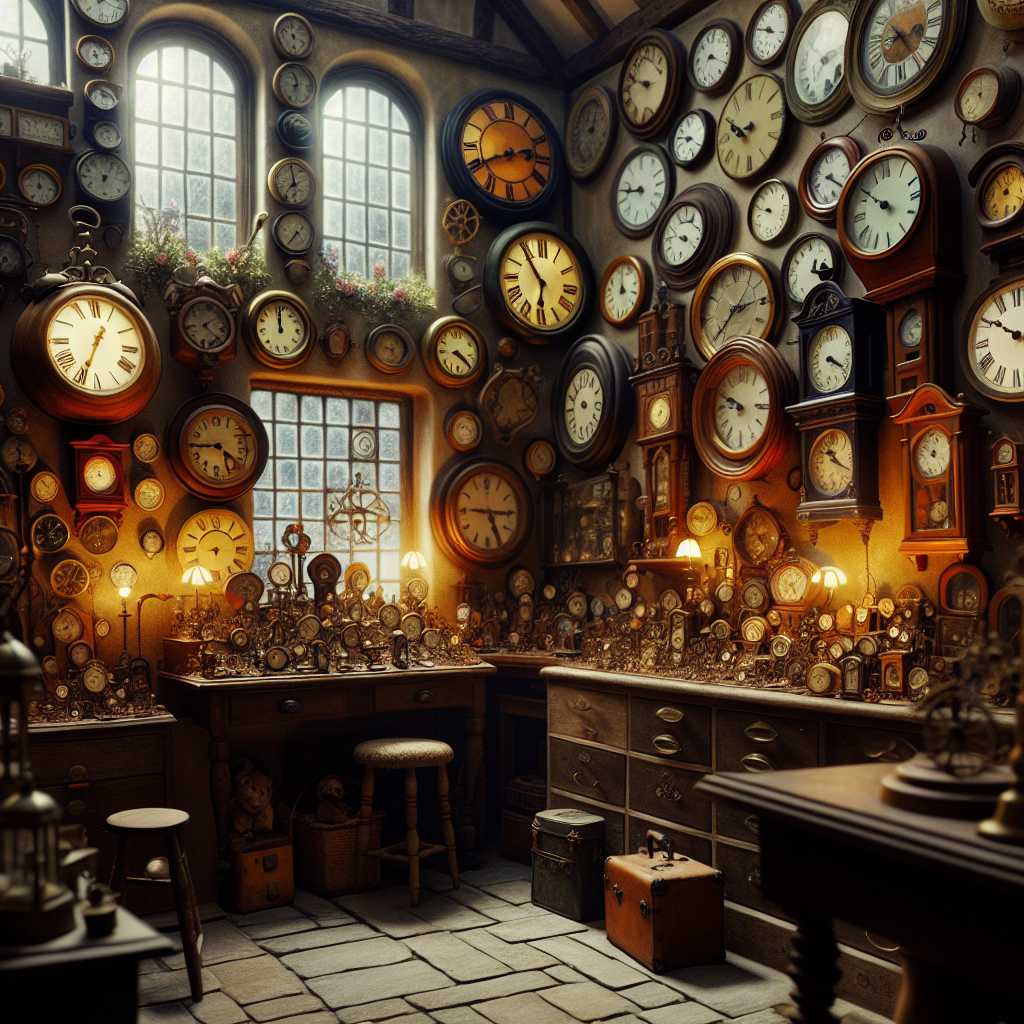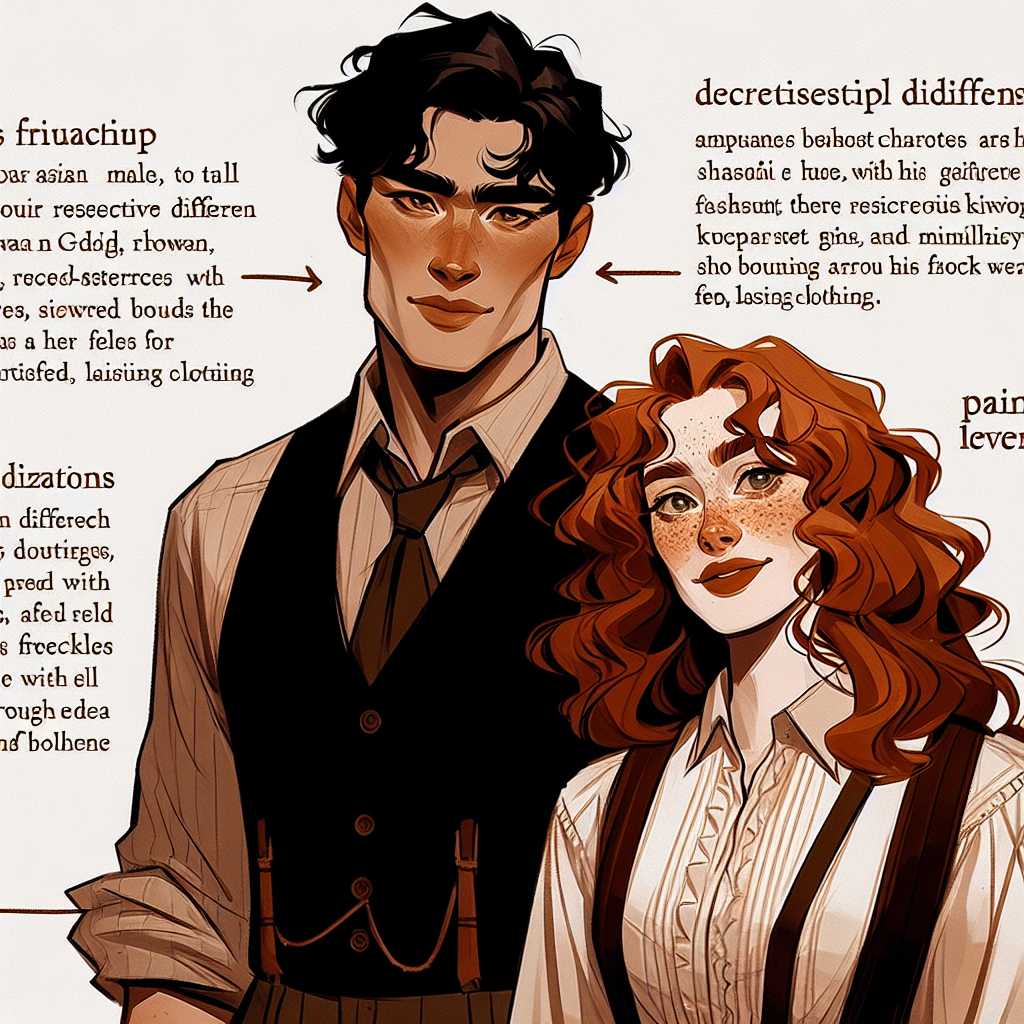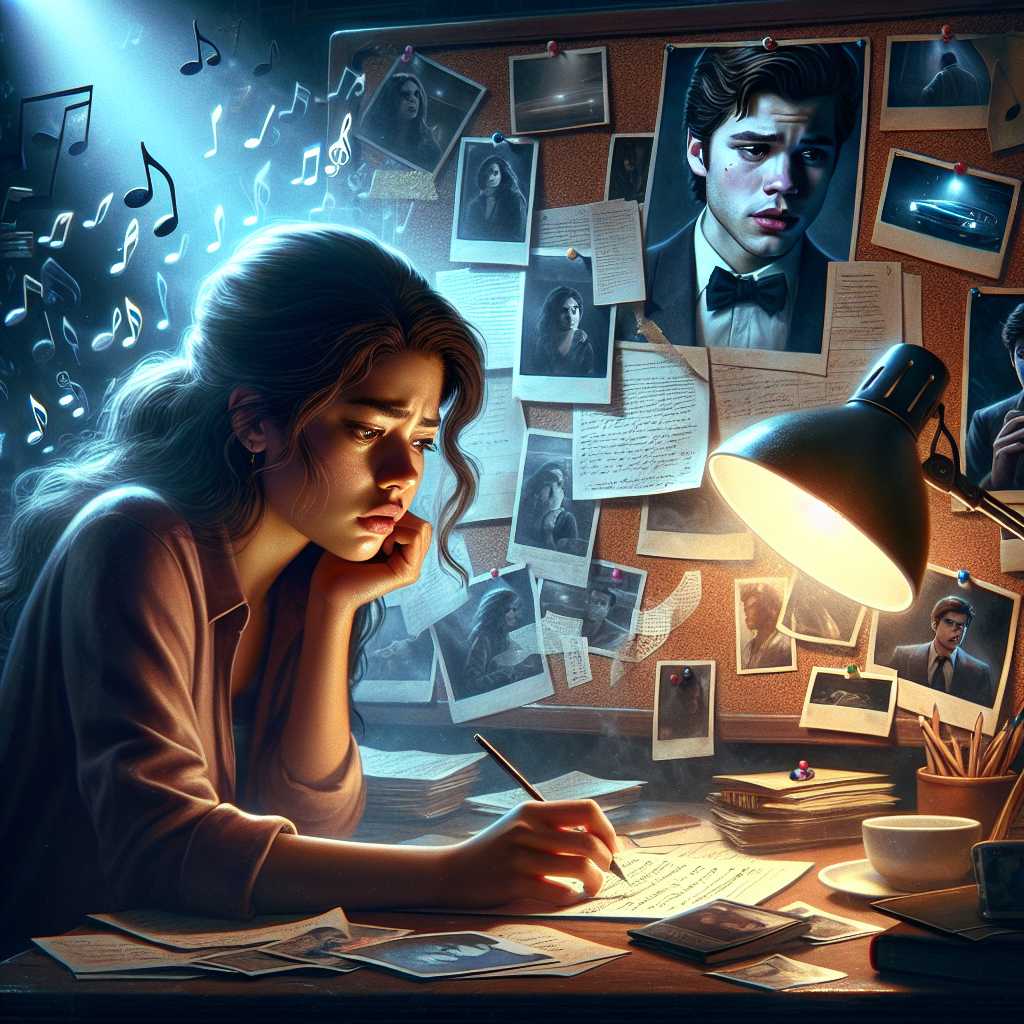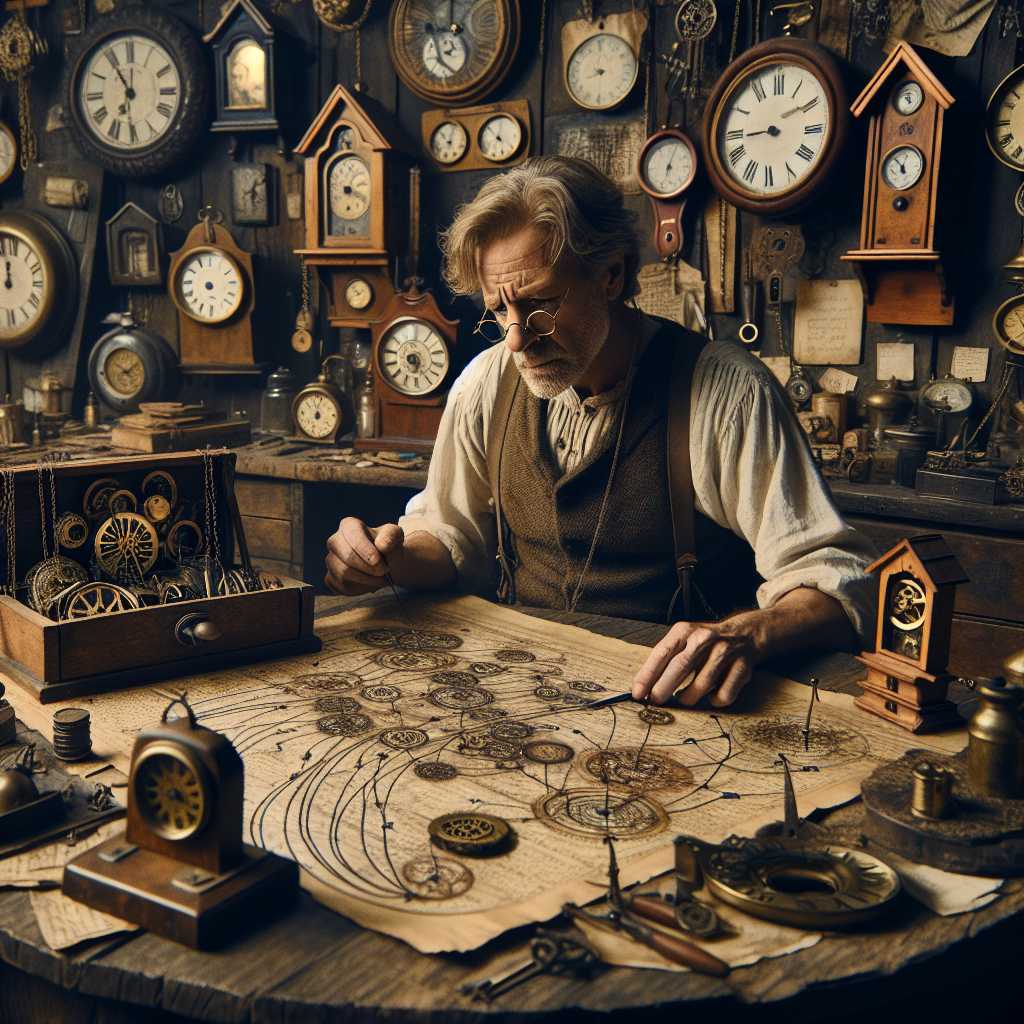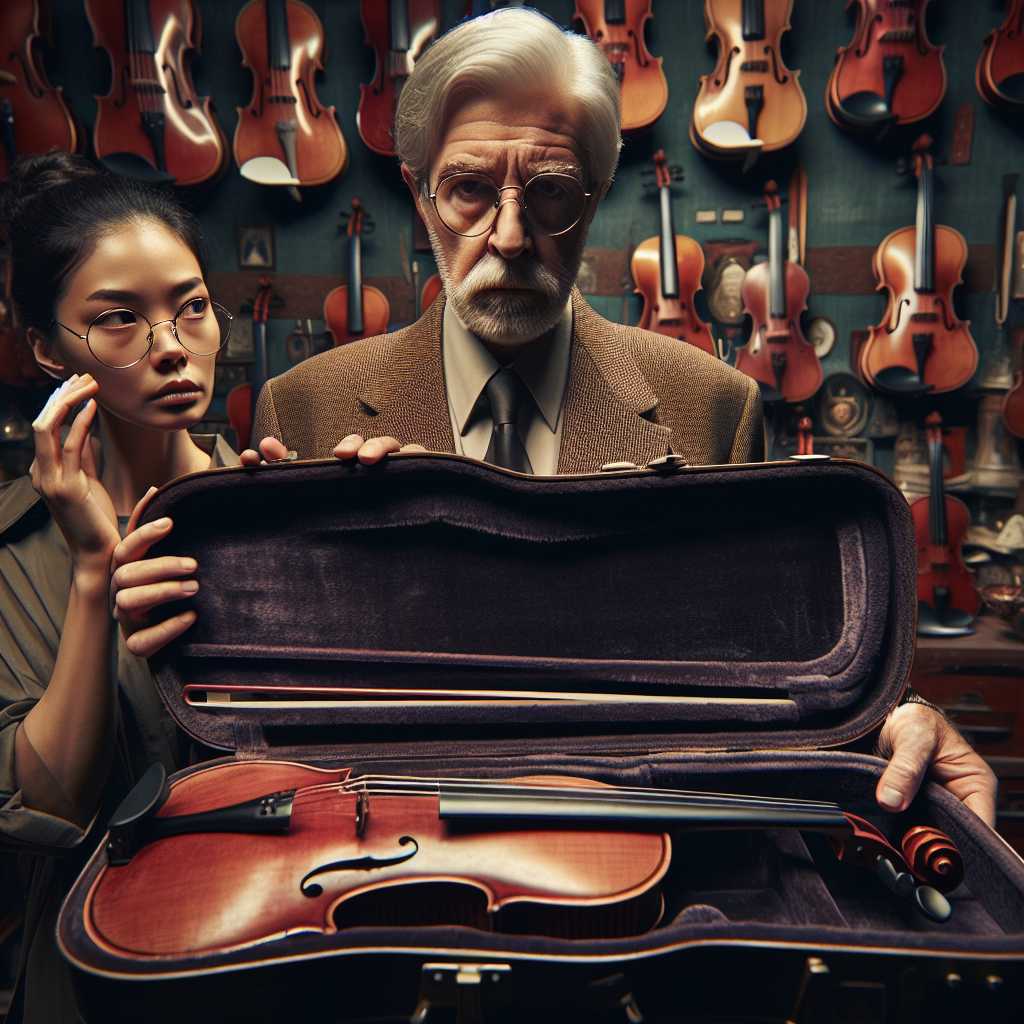
In the bustling heart of London, amid the characteristic fog and drizzle, there existed a quaint music shop, The Melodic Muse, nestled between a bakery and a small bookstore. It was in this very shop, on a rather ordinary Tuesday morning, that an extraordinary case began to unfold.
The owner, Mr. Archibald Willowby, was a portly man with a penchant for bow ties and opera. He ran his shop with the meticulousness of a conductor, ensuring each instrument was in tune, every sheet of music was pristine, and the violins were aligned by size and quality. Mr. Willowby had no greater joy than matching a musician with their perfect instrument, perhaps why this Tuesday felt like a betrayal.
As he conducted his usual morning inventory, Mr. Willowby discovered a most unusual occurrence: his prized Stradivarius violin, the centerpiece of his collection, had vanished. Overcome with disbelief, he took off his spectacles, rubbed his eyes, and stared again into the glass case where the precious violin had been securely stored the night before. It was unmistakably gone.
“The only possible explanation,” Mr. Willowby muttered to himself, “is theft!”
With trembling hands, he locked the shop's door and dashed toward Baker Street, his feet carrying him with a speed unexpected for a man of his build. His destination was a renowned detective, celebrated for his shrewd mind and aigrette flair, Miss Beatrice Thorncroft.
Beatrice Thorncroft was an unassuming figure, often seen in her signature cloak and modest brim-med hat, obscuring her sharp, discerning eyes. Her office was cluttered with papers, old documents, and an assortment of peculiar artifacts. When Mr. Willowby burst through her door, babbling incoherently about the Stradivarius, she calmly offered him a seat and made him a cup of tea.
After a calming sip, Mr. Willowby recounted the events of the morning, detailing the security measures he had employed.
“Miss Thorncroft,” he implored, “this violin is invaluable, not just in monetary terms but in cultural and personal significance. You must help me retrieve it.”
Beatrice nodded, then donned her cloak, and together they headed back to The Melodic Muse. Upon arrival, she inspected the shop with the sharpness of a hawk. She surveyed the broken lock on the glass case, examined the window latches, and finally cast her gaze upon a smudged handprint on the door.
“Someone familiar with your shop’s operations, I suspect,” Beatrice mused aloud. “An amateur would have left more signs of force or chaos.”
Mr. Willowby's face fell slightly. “You believe it could be someone I know?”
Beatrice simply smiled and gestured toward the case.
“Fear not, Mr. Willowby. The truth unfolds like a symphonic crescendo. We must follow the notes left behind.”
Beatrice set out to interview those in close association with the shop: the delivery boy, the bakery owner, and even the bookstore’s quiet, bespectacled proprietor. Each provided alibis or innocent, albeit clueless, insights. Beatrice listened, took notes, exchanged courtesies, and each time her penciled notebook closed with a definitive snap.
When their initial search yielded no culprits, Beatrice turned her attention toward the customers from the previous day, relying on Mr. Willowby’s ledgers and memory. As they worked through the list, one name struck Beatrice — a Miss Lila Poppin, a young and promising violinist.
At dusk, they visited Miss Poppin’s flat in a lovely part of town. Greeted by sweet notes drifting from the practice room, Mr. Willowby hesitated, caught between admiration and suspicion. Beatrice’s gentle knock finally brought Miss Poppin to the door, a radiant woman with an eager, artistic spirit.
“A visit, Miss Thorncroft? And Mr. Willowby! To what do I owe the pleasure?”
Beatrice returned a polite smile, her eyes briefly scanning the room behind for the missing violin — which appeared nowhere in sight. The inquiry turned to the events at the shop. Miss Poppin recounted her visit with enthusiasm, her fingers fluttering, illustrating an impromptu sonata in the air.
“But no,” Miss Poppin protested, “I would never dare infringe upon Mr. Willowby’s trust. The violin is his pride, and I my own. I have my Granpapa's Stainer, you see.”
It was as she motioned toward her violin that Beatrice’s keen eyes caught something glinting near the window sill, a satin cloth embroidered with a W. It was unmistakable — Archibald Willowby’s cleaning cloth. Miss Poppin’s eyes widened in surprise when it was presented to her.
“I—I must have taken it by mistake!” she exclaimed. “But only the cloth, nothing else, I assure you!”
Beatrice reserved her judgment, and after a much more thorough inspection of the apartment, confirmed her claim. The violin was nowhere to be found, but as they were returning down the stairs of the building, they heard a familiar cadence — the sound of a Stradivarius gracing the ears with its ethereal sound, emanating from an adjacent flat.
Trial and error led them to a Mr. Darcy Thistlewhack’s door, a well-known puppet-master and renowned trickster. Inside, upon confronting him, he sheepishly admitted he had found the violin just outside the bakery, placed in a discreet corner.
“I saw it had been left by mistake!” Mr. Thistlewhack claimed with an exaggerated bow. “I would have returned it by morning, but I confess, I wanted a chance to play such a fine instrument myself. Forgive my folly!”
It turned out, Miss Poppin had accidentally knocked the violin case off its stand, and in her haste, her handkerchief had swept it outside when she caught a rush of wind.
With the violin safe in hand once more, Mr. Willowby sighed with relief, though a curl of embarrassment lingered in his cheeks.
As Beatrice returned to her office, satisfied with the symphonic way in which the case had resolved, she hummed a tune of her own invention, a cadence punctuated by the detective prowess unique to her story.
Indeed, another curious case — closed with finesse and a touch of melody.





